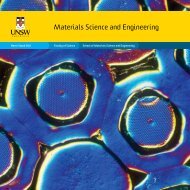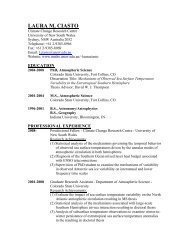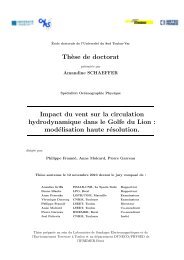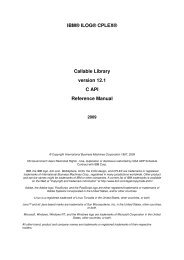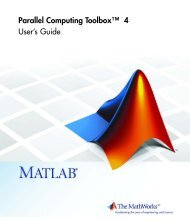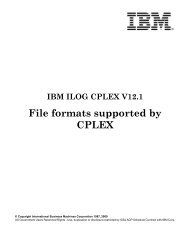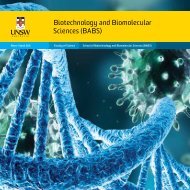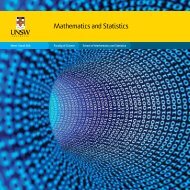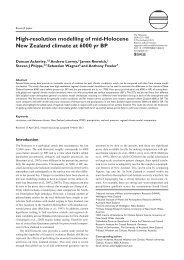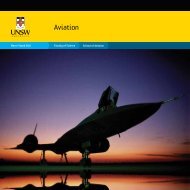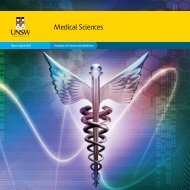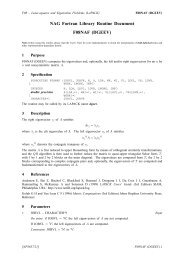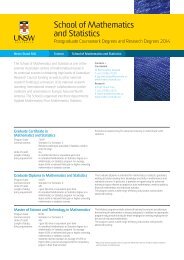2011 Postgraduate Research Competition - UNSW Science - The ...
2011 Postgraduate Research Competition - UNSW Science - The ...
2011 Postgraduate Research Competition - UNSW Science - The ...
You also want an ePaper? Increase the reach of your titles
YUMPU automatically turns print PDFs into web optimized ePapers that Google loves.
Page |29<br />
Running Puts Stem Cells on Track!<br />
Joyce Siette and Fred Westbrook<br />
School of Psychology<br />
Abstract<br />
Memory impairments in later life are extraordinarily common, ranging from almost universal<br />
self-reported mild memory complaints, to the more severe memory problems associated with<br />
dementia and neurodegenerative diseases. It is thus critical to develop preventative<br />
strategies for combating the effects of brain ageing. To date, studies of cell therapy and<br />
exercise individually offer remedial strategies for decreasing impaired function and<br />
behaviour. <strong>The</strong> current experiment aimed to identify the additive effects of these two<br />
approaches. Aged rats were assessed on the object recognition (perihrinal-dependent) and<br />
place recognition (hippocampal-dependent) memory tasks prior to receiving a cell<br />
transplant or sham transplant, and were allowed to exercise for 6 weeks. We found that<br />
aged animals were impaired on the place task only. Groups that received either running, cell<br />
transplant, or both, dramatically reversed this impairment. Additionally, histological results<br />
show that transplanted cells migrate successfully to areas critical for memory formation and<br />
retention. Exercise may further improve this migration and promote cell survival.<br />
Epidemiological and clinical studies already suggest that physical exercise may be an<br />
effective preventative strategy against dementia. By contrast, cell therapy remains an<br />
experimental approach in animals, where control of cell fate is a major obstacle to clinical<br />
translation. Here, in a naturalistic animal model of memory dysfunction, our exciting findings<br />
indicate that exercise plus cell therapy leads to better memory outcomes than cell therapy<br />
alone.<br />
Naturally-inspired antimicrobial peptide:<br />
Panacea for bacterial infections on biomaterials<br />
Abstract<br />
Ren Chen and Naresh Kumar<br />
School of Chemistry<br />
Biomaterials are used in a variety of medical devices and implants, such as catheters,<br />
prosthetic implants and contact lenses. <strong>The</strong> use of biomaterial implants and medical devices<br />
is an increasingly common and often life-saving procedure. However bacterial infections on<br />
biomaterials have emerged as a major problem, accounting for approximately 45% of all<br />
hospital-acquired infections.<br />
Consequently there is an urgent need to develop surfaces which resist bacterial adhesion<br />
and colonisation. Our research group and collaborators have developed a cationic peptide<br />
“Melimine”, with excellent broad-spectrum antimicrobial activity. In this study we explored<br />
the ability of Melimine to prevent bacterial adhesion in vitro and in vivo when covalently<br />
tethered on biomaterial surfaces. Melimine-coated surfaces showed a significant reduction<br />
in bacterial adhesion when observed under confocal microscopy. Furthermore a half log<br />
reduction in viable bacteria was observed in the test group compared with the control<br />
group in a subcutaneous mouse model after 5 days. Coating of biomaterial surfaces with<br />
Melimine represents a promising strategy for the prevention of device-related infections.<br />
|living well + ageing well



